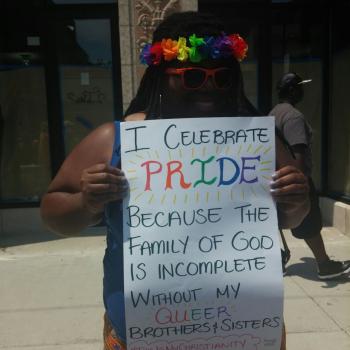
The following reflection is one I engaged in after having had a series of online and in-person conversations about forgiveness, repentance, and grace. These things are very much at the forefont of public discourse in a number of communities at present and I hope folks find this brief musing to be helpful.
One of the things I’m sitting with this morning is that people need space to consider the differences between forgiveness, repentance, and the extension of grace.
I value all three of these things AND acknowledge the power in their differences. The latter is a practice but it bears noting that the former two are processes. We can encourage people to exhibit grace and work to extend care to others when they mess up but we *cannot* demand forgiveness or repentance no matter how much we may feel that we want or need them.
See, the extension of grace is an exercise and as such, we can try it out in the midst of situations because exercise allows for that type practice. Forgiveness and repentance are different because they are personal processes that folk have to work out for the sake of their wellness. They have communal impact for sure but ultimately they are ongoing works that people choose for themselves. I sincerely believe that coercion or requirement compromise the authenticity these concepts need and encroach on the sense of agency that process demands.
This is why as upset as people may be with me in my facilitation or ministry work, I will never demand or require that someone repent or forgive in the spaces I curate.
I cannot cheapen their potency by not allowing for process & will always turn to practices that we can employ instead.
So ask for apology, ask people to be gracious, ask for folks to consider & own how they mess up but please stop demanding that people extend forgiveness or repentance in your interactions with them.
They are too powerful and critical for our collective healing to try and force folks to embrace them.












